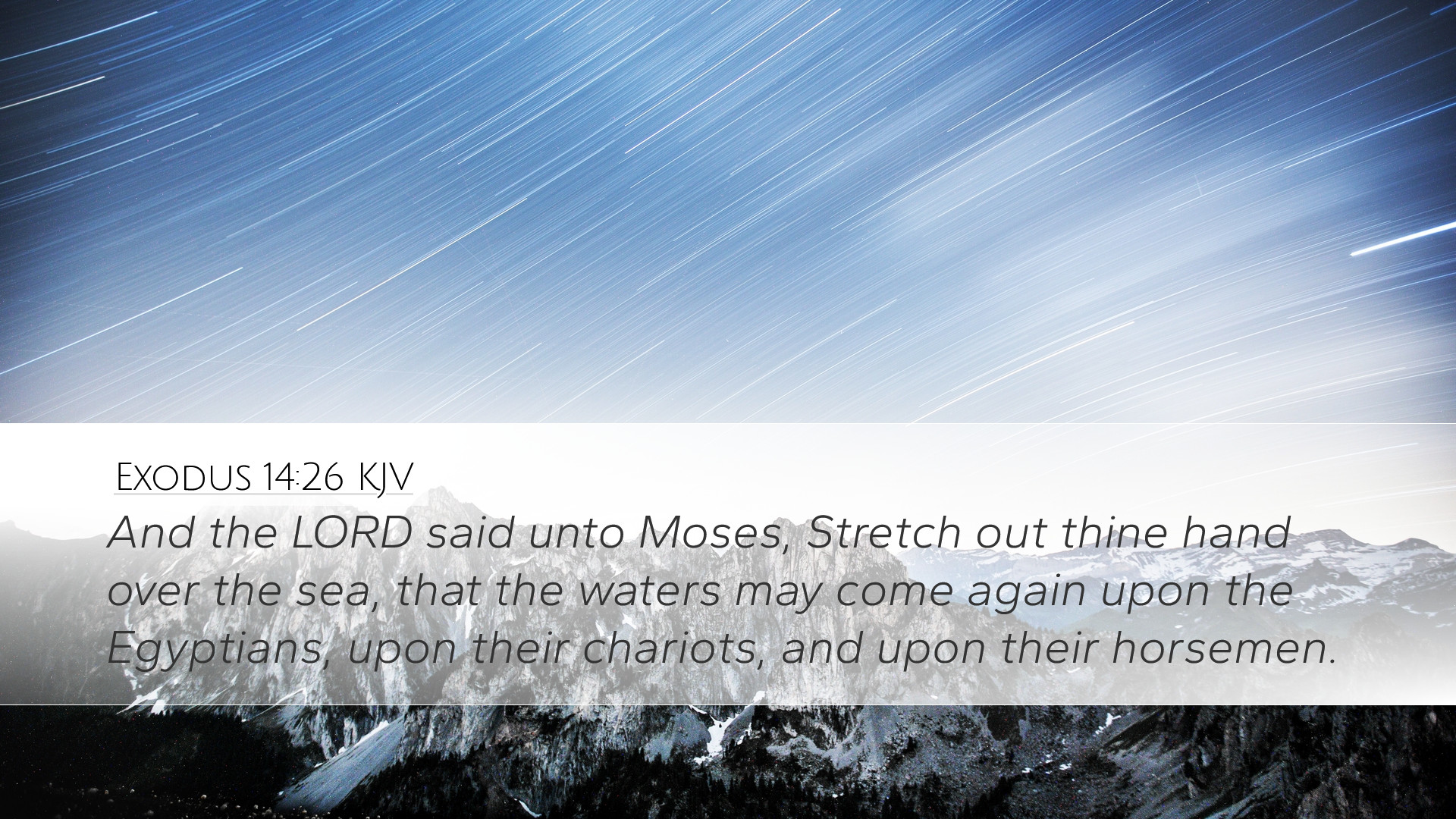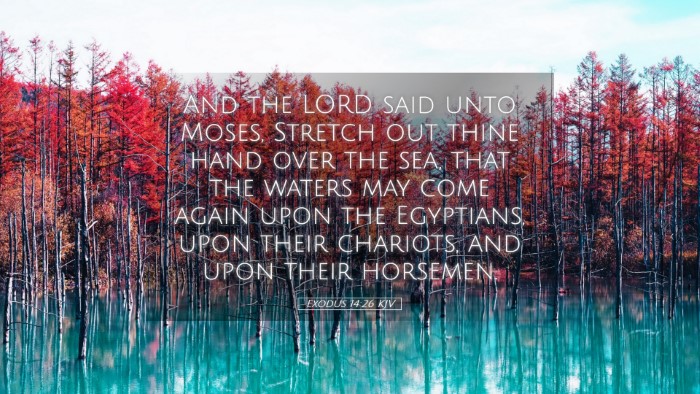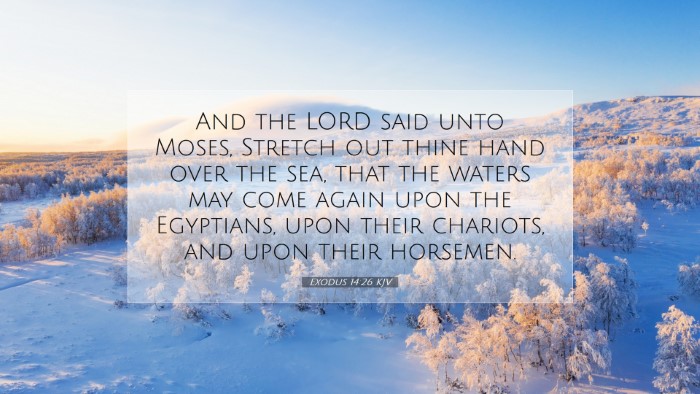Commentary on Exodus 14:26
Exodus 14:26 states: "Then the LORD said to Moses, 'Stretch out your hand over the sea, that the waters may go back upon the Egyptians, upon their chariots, and upon their horsemen.'" This pivotal moment in the narrative of the Exodus takes place following the crossing of the Red Sea, a moment of miraculous divine intervention that underscores God's power and deliverance.
Contextual Background
Before delving into the verse, it is essential to understand its context within the Exodus narrative. The Israelites had just escaped from the bondage of Egypt, experiencing the dramatic plagues that led to their release. As they fled, they found themselves cornered by the Red Sea, with Pharaoh's army pursuing them. In this context, God’s command to Moses to stretch out his hand demonstrates both God’s authority over nature and His protective journey for His people.
Theological Insights
The significance of this verse can be divided into several theological themes that emerge from the text:
- Divine Control: God's sovereignty is evident as He directs Moses to perform an act that would result in the destruction of Pharaoh’s pursuing army. This reflects the understanding in biblical theology that God is not merely a passive observer but actively engineers events for His purpose.
- Judgment and Salvation: The stretching out of Moses’ hand represents both the judgment of Egypt and the salvation of Israel. God's actions are twofold—one for the deliverance of His chosen people and the other as judgment against the oppressors who refused to heed His warnings.
- Faith and Obedience: Moses’ obedience to God sets a precedent for faithful leadership. He acts not on his own understanding but follows God’s instruction, a critical lesson for pastors and theologians today who are called to lead God’s people.
Commentary from Matthew Henry
Matthew Henry reflects on the deep significance of divine intervention in this passage. He emphasizes that the commands given to Moses to stretch out his hand were not merely performative. They symbolized the trust and obedience that marked Moses' leadership. The act serves as an external manifestation of the inner conviction that God was with His people and could part the waters of the Red Sea. Henry discusses how this episode demonstrates that God can use simple actions to accomplish extraordinary results, encouraging believers to trust in God's power.
Commentary from Albert Barnes
Albert Barnes offers a detailed analysis of the implications of the verse. He points out that the command to stretch out one’s hand represents the authority granted to Moses by God. With this act, the waters would return to their place, which signifies both the end of Israel's persecution and the vindication of God's name. Barnes notes that this moment is not just about Israel's physical escape; it illustrates a spiritual truth about God’s commitment to His covenant, showcasing Him as both a deliverer and a protector of His people.
Commentary from Adam Clarke
Adam Clarke’s interpretation delves into the practicalities of the moment. He highlights how God’s instruction to Moses underscores reliance on divine guidance. Clarke indicates that Moses acting in obedience, even when the natural elements are contrary, signifies the powerful synergy between human agency and divine orchestration. Moses’ outstretched hand symbolizes a transfer of power and a direct appeal to God’s might. Clarke elaborates on the significance of God’s actions as a precursor to the further deliverance of Israel through the wilderness.
Pastoral Application
For pastoral leaders today, Exodus 14:26 serves as a profound reminder of the importance of obedience in leadership. The act of stretching out one’s hand can be seen as a metaphor for reaching out in faith and expectation toward God’s works. Pastors are encouraged to lead with confidence, aware that their obedience to God’s commands can effectuate divine deliverance in the lives of those they shepherd.
Conclusion
The verse, Exodus 14:26, encapsulates a pivotal moment in the Exodus narrative, illustrating God's sovereign power and the importance of faith in action. It beckons the church to acknowledge God's mighty hand in both historical events and present circumstances. By studying the insights from Matthew Henry, Albert Barnes, and Adam Clarke, contemporary believers can glean vital truths about leadership, faith, and the nature of God’s redemptive work.


